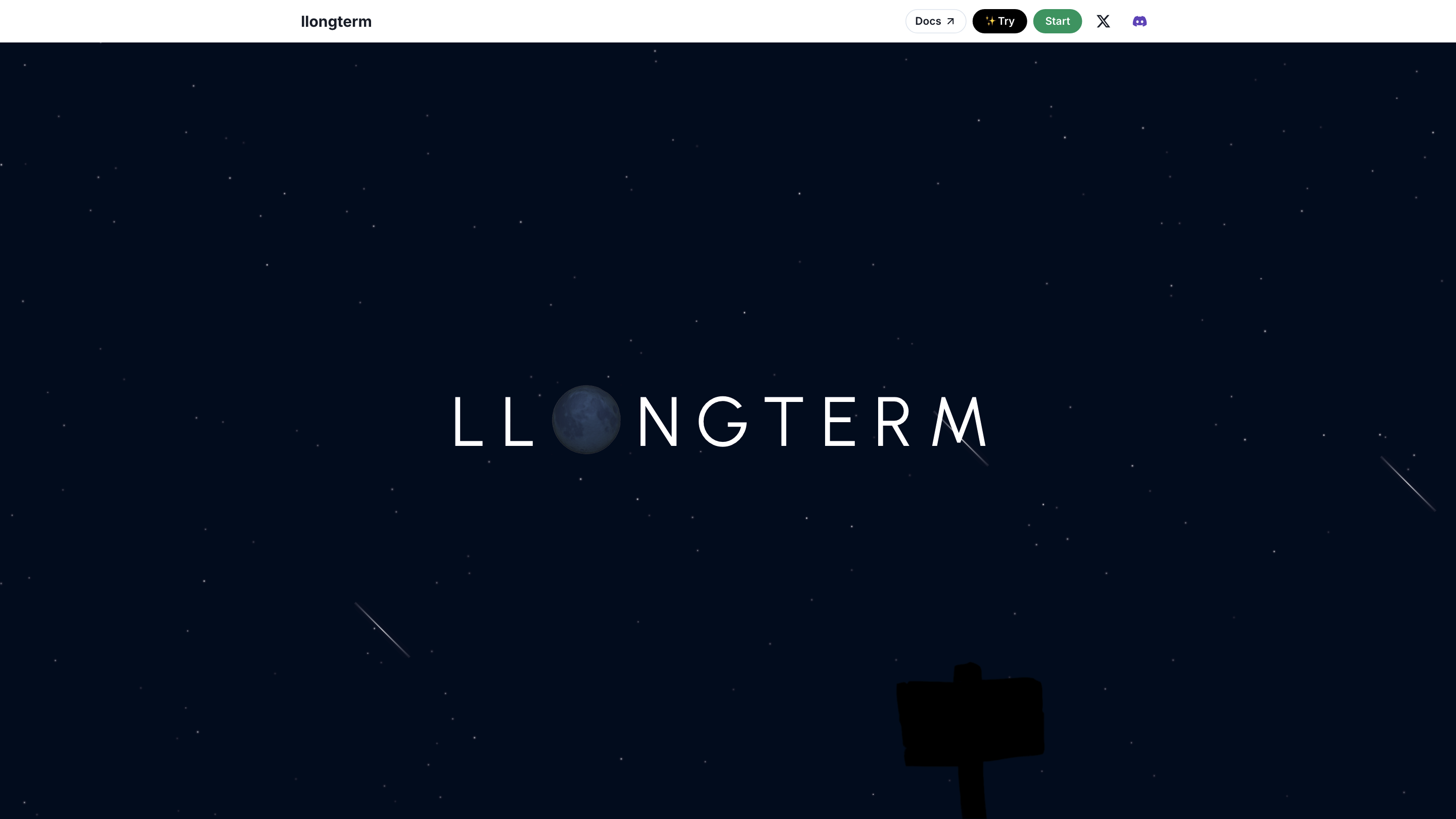Llongterm
Open siteIntroduction
API for persistent memory in generative AI and chatbots.
Llongterm Product Information
Llongterm: Mind as a Service for AI Apps & Agents
LLongterm provides long-term memory capabilities for AI apps and agents, enabling persistent, human‑readable memories across conversations and sessions. It is designed to be compatible with all AI chatbots and agents and offers a sandbox for experimentation. The platform emphasizes memory that is easy to inspect and reason about, with structured mind objects and memory APIs to store and retrieve information.
Overview
- Create a persistent “mind” for an AI user or agent and attach conversations, profiles, milestones, session history, and other contextual data.
- Memory operations are accessible via a simple API, allowing you to remember threads, topics, goals, and user preferences.
- The system supports human-readable data representations (JSON-like structures) to facilitate debugging and auditing.
- Includes a sandbox environment for experimentation and learning how memory affects behavior.
How it works (conceptual)
- You create a mind instance: const mind = llongterm.create().
- You store memory by passing conversational threads or structured objects to mind.remember(thread).
- The memory is retrieved and organized into a memory bag (e.g., const { memory } = await mind.remember(thread)).
- Minds can be used with any AI chatbot or agent, enabling a shared context across platforms and sessions.
Use Cases
- AI Teaching Assistants that recall student profiles, progress, and preferences.
- AI Customer Support agents that remember customer history and prior requests.
- Therapy or coaching assistants that track progress and milestones over time.
- Product managers or students who need long-term timelines, goals, and learning history.
Example: Student Profile (illustrative)
Alex Chen, Master’s CS student, visual learner, strong math/problem solving, needs writing skills improvement. Learning preferences include visual diagrams, practice problems, and interactive demos. Current modules include Advanced Algebra with a plan to cover Complex Numbers and Matrices. The memory model supports keys like name, learning_style, strengths, areas_for_improvement, learning_preferences, academic_background, course_progress, learning_history, needs_review, goals, milestones, and support needs.
How to Use LLONGTERM (typical flow)
- Create a mind for a user or agent:
- const mind = llongterm.create()
- Remember a conversation or profile:
- const thread = [{ author: "assistant", message: "How do you feel about apples?" }, { author: "user", message: "I finally enjoy them 🍏" }]
- const { memory } = await mind.remember(thread)
- Retrieve and use memory in conversations:
- Use memory data to tailor responses, recall goals, remind about milestones, or surface relevant context.
Safety and Ownership
- Memory data is human-readable and structured for auditing and understanding.
- Ensure proper consent and data governance when storing personal or sensitive information.
Feature List
- Create and manage per-user or per-agent minds (Mind as a Service).
- Long-term memory persistence across sessions and conversations.
- Human-readable memory representations for easy inspection and debugging.
- API-based memory operations (remember, retrieve, and reason over memory).
- Compatibility with all AI chatbots and agents across platforms.
- Sandbox environment for experimentation and learning.
- Structured memory schemas (profiles, conversation threads, milestones, goals, preferences).
- Scalable memory management with clear ownership and modular data blocks.
- Easy integration with existing AI stacks and workflows.
